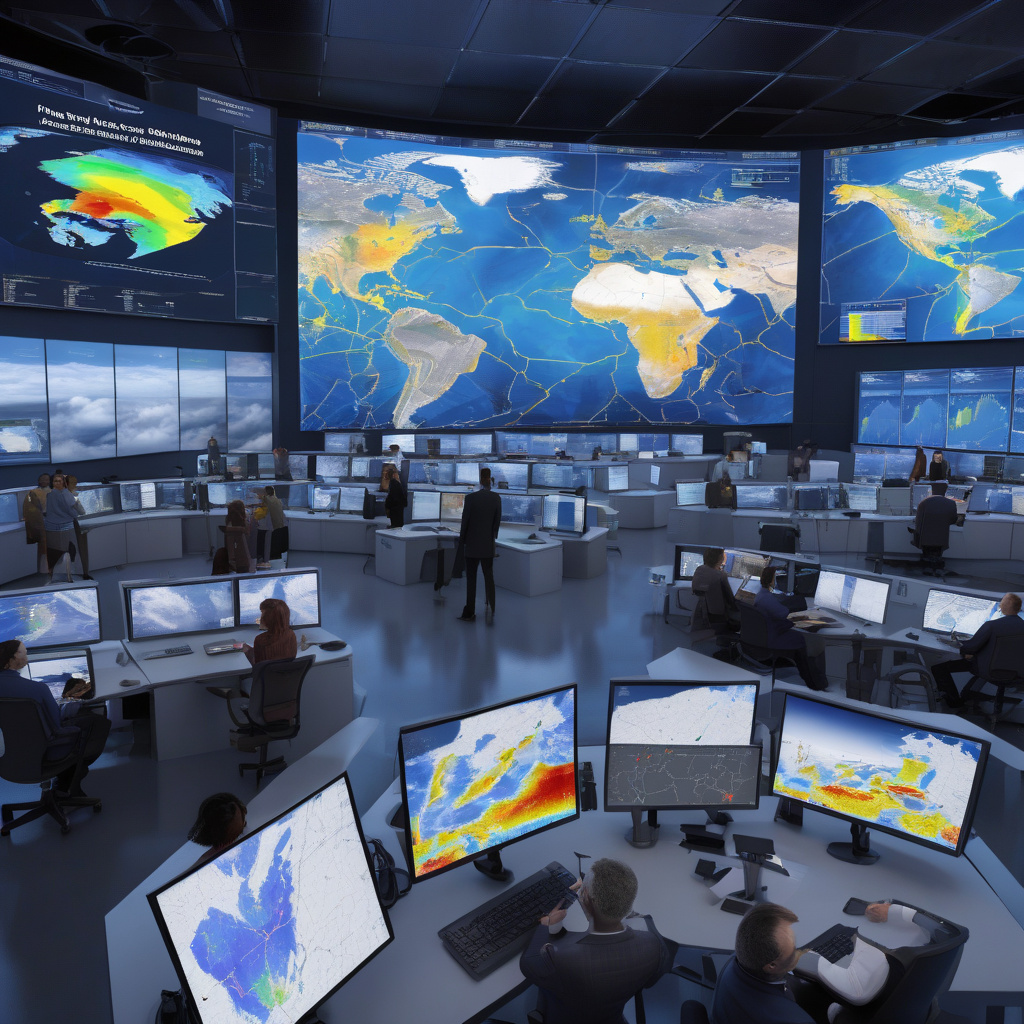Revolutionizing Weather Forecasting: ECMWF’s New AI Model
In a groundbreaking move, the European Center for Medium-Range Weather Forecasts (ECMWF) has unveiled its latest innovation – the Artificial Intelligence Forecasting System (AIFS). This cutting-edge AI model is set to transform medium-range weather forecasting by offering precise predictions spanning three to 15 days into the future.
Unlike conventional physics-based models, the AIFS boasts a remarkable capability to deliver in-depth forecasts for crucial weather parameters such as wind, temperature, and precipitation. What sets it apart is its projected enhancement of forecast accuracy by up to 20% compared to contemporary models. Additionally, the ECMWF anticipates that the AIFS will operate with unprecedented efficiency, being not only faster but also consuming a mere fraction of the energy expended by current systems.
The traditional approach to weather prediction relies on solving physical equations, which, while effective, only scratches the surface of atmospheric complexities. In stark contrast, AI-driven models like the AIFS excel in deciphering intricate relationships and dynamic patterns directly from vast datasets. This inherent flexibility allows AI models to capture nuances that may elude standard physics-based simulations, leading to more reliable and insightful forecasts.
By democratizing access to the AIFS and offering it free of charge, the ECMWF is poised to revolutionize the landscape of weather forecasting. This move not only empowers meteorologists and researchers with state-of-the-art tools but also underscores the organization’s commitment to advancing scientific knowledge for the benefit of all.
In an era where accurate weather forecasts are crucial for various sectors ranging from agriculture and transportation to disaster management, the introduction of the AIFS heralds a new chapter in meteorological advancements. As the capabilities of AI continue to unfold, we can expect even more sophisticated models that push the boundaries of what is deemed possible in weather prediction.
With the AIFS paving the way for enhanced forecast accuracy, efficiency, and accessibility, it stands as a testament to the transformative potential of AI in shaping the future of weather forecasting. As we witness this convergence of technology and meteorology, one thing remains certain – the forecast for the field looks brighter than ever before.

